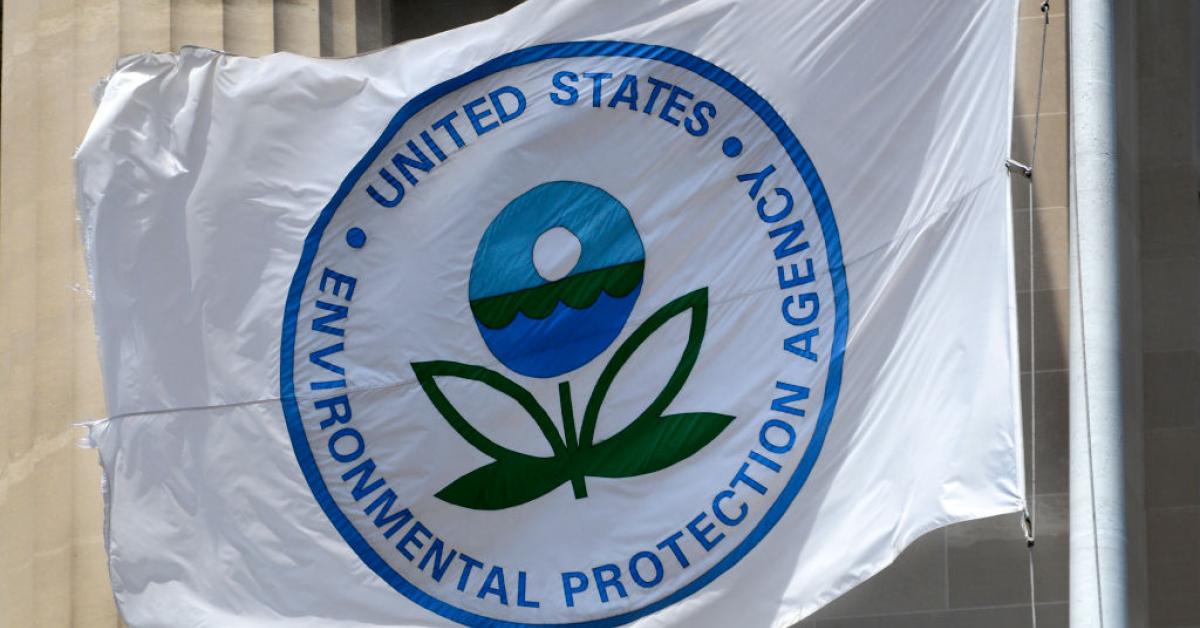(Bethany Blankley) Bugs are designed to combat Dengue fever, Yellow fever, and the Zika virus, the latter two which aren’t in Florida.
Related Biden’s EPA DELETES Inconvenient Data Showing No Man-Made Climate Change
by Bethany Blankley, March 9th, 2022
he U.S. Environmental Protection Agency has approved an experimental use permit submitted by a British biotech company to release millions of genetically engineered mosquitos into the Florida Keys in an effort to combat Dengue fever, Yellow fever, and the Zika virus.
All three diseases are transmitted by the Aedes aegypti (yellow fever mosquito) and Aedes albopictus (Asian tiger mosquito) in certain parts of the world.
Yellow fever and the Zika virus currently don’t exist in Florida or in the United States.
The British firm Oxitec, which is funded by the Bill and Melinda Gates Foundation, submitted its application last August. The application received 12,691 comments and widespread public opposition.
The EPA approved the Florida Keys Mosquito Control District (FKMCD) project, continuing a pilot program that began last April despite widespread opposition.
Yellow fever was previously a major public health concern in the U.S. in the 1700s and 1800s, the Florida Department of Health states. “The last epidemic in North America occurred in New Orleans in 1905. The risk of sylvatic transmission in the United States is low.”
Yellow fever is “a very rare cause of illness in U.S. travelers,” the CDC states; Floridians can go to over 100 clinics to get a vaccine for it.
“There is no current local transmission of Zika virus in the continental United States,” the CDC states. “The last cases of local Zika transmission by mosquitoes in the continental United States were in Florida and Texas in 2016-17. Since 2019, there have been no confirmed Zika virus disease cases reported from United States territories.”
“Zika fever is a mild illness caused by a mosquito-borne virus similar to those that cause dengue and chikungunya virus infection,” the Florida Department of Health states. “It has been identified in several countries in Central and South America, Mexico, and the Caribbean since 2015. Cases of Zika fever have been reported in travelers returning to the United States. Zika virus is not transmitted person-to-person.” The department investigated cases in 2015 and 2016.
Florida has reported cases of Dengue fever over the past decade. As of March 2, 2022, there are currently 11 Dengue cases in Florida, of which 65% are travel related, the CDC reports. Zero are locally transmitted cases.
After the pilot began last April, an outbreak in the Upper Keys was reported and a Miami woman died from Dengue fever.
In 2020, there were 40 Dengue cases reported in Florida, of which 11% were associated with travel, the CDC reported. There were 71 locally transmitted cases, of which 86% were associated with travel. There was an outbreak in Martin County in 2013, the Florida Department of Health reported, and an outbreak in 2009 and 2019 in Key West.
“Given the growing health threat this mosquito poses across the U.S., we’re working to make this technology available and accessible,” Oxitec’s CEO, Grey Frandsen, said. “These pilot programs, wherein we can demonstrate the technology’s effectiveness in different climate settings, will play an important role in doing so.”
“Oxitec’s safe, sustainable and targeted biological pest control technology does not harm beneficial insects like bees and butterflies and is proven to control the disease transmitting Aedes aegypti mosquito, which has invaded communities in Florida, California and other U.S. states. In California, since first being detected in 2013, this mosquito has rapidly spread to more than 20 counties throughout the state, increasing the risk of transmission of dengue, chikungunya, Zika, yellow fever and other diseases,” Oxitec states in a press release.
Last year, Oxitec and the Florida Keys Mosquito Control Board released half a billion genetically engineered mosquitoes into Monroe County. Oxitec spokeswoman Meredith Fensom said the company is still monitoring traps as part of last year’s project, the Florida Keys News reported.
Neither the mosquito control board nor Oxitec informed community residents about the locations of release until three days before the mosquitoes were released, groups opposed to the program have pointed out. Likewise, members of the community weren’t given informed consent, they add.
“The EPA’s decision ignores all basic logic,” Barry Wray, executive director of the Florida Keys Environmental Coalition, said in a news release. The group opposes the program and questions Oxitec’s technology.
“The EPA has been shown very clearly that Oxitec misrepresented recent field performance on its original application with the EPA for experimentation in the Keys,” he added. “They have been shown that each time an independent scientific investigation evaluates Oxitec’s technology in the lab or field, the results contradict or find significant flaws and concerns with Oxitec claims. The release of scientific data from the Cayman (Islands) field trials showed Oxitec’s failure in contrast to their continued claims of success; yet the EPA only reviewed Oxitec generated claims as sufficient information for approving the largest release in history of a genetically modified animal into the wild.”
Oxitec claims its mosquitos are male and don’t bite. They are released into the wild to mate with females that do bite. Once the mosquitoes mate, the male passes on its gene that ensures its offspring die before reaching maturity, the company claims.
However, scientists, public health experts and environmental groups argue no publicly available data supports Oxitec’s claims. Friends of the Earth points to an independent peer-reviewed study conducted by Yale University scientists who evaluated a similar experiment in Brazil and found a different outcome.
Over two years, genetically engineered Aedes aegypti mosquitoes were released in Brazil and their population didn’t decline. Instead, hybrid mosquitos were created that were more difficult to eradicate and might actually increase the spread of mosquito-borne disease, the researchers found.
“Releasing billions of GE mosquitoes makes it likely that female GE mosquitoes will get out and create hybrid mosquitoes that are more virulent and aggressive. Other public health strategies, including the use of Wolbachia infected mosquitoes, could better control the Aedes aegypti,” Jaydee Hanson, policy director for the International Center for Technology Assessment and Center for Food Safety, said in a news release.
Information about allergenicity and toxicity was redacted from Oxitec’s permit application, Friends of the Earth said. The EPA also didn’t require scientific assessments to be done before approving the permit, including an endangered species assessment, public health impact analysis, or caged trials ahead of any environmental release; and also declined to convene a Scientific Advisory Panel as it does for all new pesticides introduced into the environment, the group added.
“Scientists have found genetic material from GE mosquitoes in wild populations at significant levels, which means GE mosquitoes are not sterile. GE mosquitoes could result in far more health and environmental problems than they would solve,” Dana Perls, a food and technology program manager at Friends of the Earth, said. “EPA needs to do a real review of potential risks and stop ignoring widespread opposition in the communities where releases will happen.”
Floridians opposed to the program can contact the governor, state legislators, county officials, and the state Department of Agriculture, which has to approve the project.
Stillness in the Storm Editor: Why did we post this?
The news is important to all people because it is where we come to know new things about the world, which leads to the development of more life goals that lead to life wisdom. The news also serves as a social connection tool, as we tend to relate to those who know about and believe the things we do. With the power of an open truth-seeking mind in hand, the individual can grow wise and the collective can prosper.
– Justin
Not sure how to make sense of this? Want to learn how to discern like a pro? Read this essential guide to discernment, analysis of claims, and understanding the truth in a world of deception: 4 Key Steps of Discernment – Advanced Truth-Seeking Tools.
Stillness in the Storm Editor’s note: Did you find a spelling error or grammatical mistake? Send an email to [email protected], with the error and suggested correction, along with the headline and url. Do you think this article needs an update? Or do you just have some feedback? Send us an email at [email protected]. Thank you for reading.
Source:
Support our work! (Avoid Big Tech PayPal and Patreon)DIRECT DONATION


What could possibly go wrong? Interesting this story is ramping up about mosquitoes right at the time when Australia supposedly has some Japanese Encephalitis Virus active in the country. This has been present in the very north of the country for years, but all of a sudden, it has miraculously appeared in our southernmost state on the main island (so to speak) – Victoria! I think the sooner people of our current consciousness stop interfering with nature, the better – they have a habit of making everything worse – thinking of superbugs and superweeds as just two quick examples.
All i care about is how we stop this. Can we do something to stop it? Basically the whole state and country is againt this. Soooo how about we interrupt this whole thing.